Anal fissure
What is an anal fissure?
An anal fissure is a rupture of the mucous membrane of the anal canal (the anal canal is the final section of the colon between the rectum and the anus). A crack usually forms on the border of the skin and mucous membrane at the site of the so-called posterior adhesions; mainly in women, cracks form on the anterior surface of the anal canal.
Anal fissures are more common in women (especially during pregnancy and after childbirth) than in men, but the age, regardless of gender, is approximately the same — from 20 to 60 years.Anal fissure is one of the most common diseases in proctology, but it is often confused with other causes of pain and bleeding, such as hemorrhoids.
How does an anal fissure manifest itself?
The main signs of anal fissure are acute, tearing pain, burning during or after defecation, associated with spasm of the sphincter. As a rule, people describe their feelings as if "something burst" in the anus. The pain can spread to the sacrum, back, perineum, lower abdomen and continue after defecation. A characteristic manifestation of a crack is bright scarlet blood on toilet paper or in a chair. Bleeding always scares the patient, but, as a rule, it is not strong and stops quickly, which should be taken into account in the diagnosis as the difference between cracks and other diseases. Some patients complain of itching in the anus and/or skin irritation.
Why does an anal fissure occur?
One of the most common causes of anal fissures is a violation of bowel movements. Constant constipation causes the stool to become stiff and bulky, thereby causing ruptures and cracks in the anus. Also, among the common causes are various irritants: diarrhea for several days, eating spicy food, alcohol, and some medications. A crack can also be the result of trauma or anal sex.
Factors that increase the risk of anal fissure formation — inflammatory phenomena in the anus and rectum in Crohn's disease, ulcerative colitis, sexually transmitted infections(syphilis, gonorrhea, herpes simplex virus, cytomegalovirus, HIV), hemorrhoidal disease, proctitis, rectal and anal cancers. The inflammatory process leads to the replacement of normal tissues of the anus with scarred, inelastic ones, which is a predisposing factor for the formation of a crack that does not heal even after proper treatment.
Acute or chronic anal fissure?
Anal fissure can be acute (recent) or chronic (more than 8-12 weeks). In half of the cases, acute cracks heal in patients after normalization of stool within 4-6 weeks. If healing does not occur, the anal fissure can become chronic, which is accompanied by inflammation and the formation of scar tissue that looks like a fold or bump. The duration of the crack will be taken into account by the doctor when prescribing treatment.
Consult an EMC coloproctologist!
The symptoms of anal fissure are similar to those of other, more serious proctological diseases, including cancer. Therefore, at the first symptoms of anal fissure, it is necessary to consult a coloproctologist.
First of all, the doctor finds out the patient's complaints (the symptoms of anal fissure are very specific), and examines the anus and, if possible, performs a finger examination of the rectum to assess the severity of the spasm. In most cases, these manipulations are sufficient to make a diagnosis.
Anal fissure should be distinguished from hemorrhoids and inflammatory bowel diseases (proctitis, paraproctitis, ulcerative colitis, Crohn's disease), as well as from cancer of the anal canal and rectum. To exclude intestinal pathology, a rectoromanoscopy or colonoscopy may be prescribed, these studies can reveal changes in the mucous membrane of the rectum or, if necessary, throughout the large intestine. You may need to consult a dermatovenerologist to identify sexually transmitted infections.
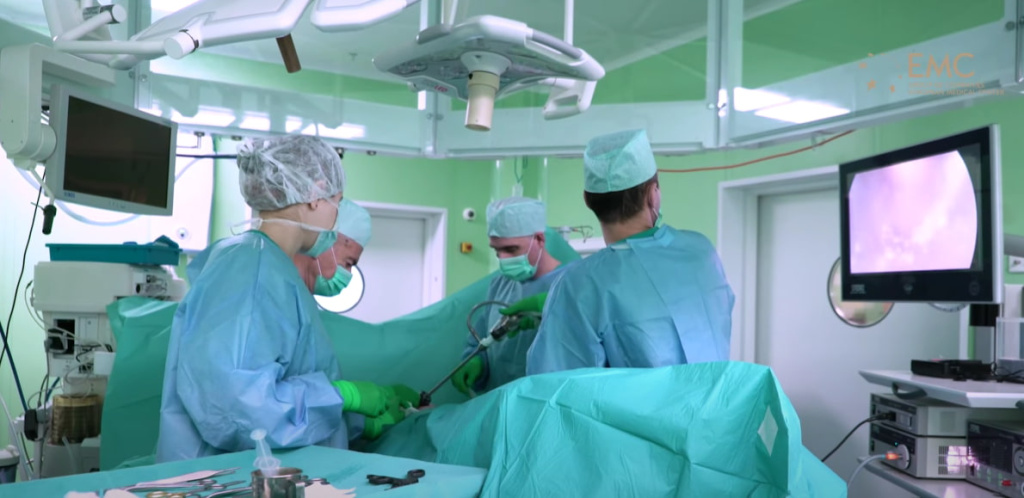
Anal fissure treatment
What is required of the patient?
-
It is necessary to normalize the stool with a diet. Include fiber-rich foods in your diet that help form soft stools that don't injure cracks. Fresh vegetables, fruits, dried fruits (dried apricots, prunes, figs), cereal dishes and grain bread are useful.
-
Drink at least 2 liters of water a day.
-
Maintain a level of physical activity adequate to your state of health. Walking for at least 30 minutes, basic gymnastics in the morning is mandatory, every day!
-
Maintain hygiene: keep the anus clean and dry; replace regular toilet paper with a cold hygienic shower after defecation.
-
Follow the rules of going to the toilet: do not stay too long on the toilet — if the body has "changed its mind", do not push, it is better to postpone the process until the urge appears; never suppress the urge to defecate, immediately go to the toilet.
-
Take a stool-softening medication that your doctor will prescribe; even if you feel better, do not stop taking it until your next visit to the doctor. The decision to cancel medications is made only by the doctor!
-
Do not take medications (including medicinal herbs) without consulting your doctor.
-
Contact your doctor if your symptoms persist or worsen during treatment, as well as if new symptoms occur.
-
Contact your doctor immediately if you experience heavy and persistent bleeding from the rectum.
What can a doctor prescribe?

Anal fissures usually heal with simple but specific treatment while following lifestyle recommendations.
During the consultation, the coloproctologist decides on the appointment of specific drug therapy or surgical treatment (mainly for chronic, persistent cracks).
In order to reduce the spasm of the anus, pain can be applied topically with a thin layer of anesthetic, nitroglycerin or diltiazem ointment. Rectal suppositories with anesthetic and components that accelerate wound healing are also often used. There are many types of rectal suppositories and ointments — which ones are suitable in your case, the doctor will decide. The treatment is combined with warm sedentary baths for 2-3 weeks in a row. Sedentary baths should be used after defecation and hygiene procedures: heat relaxes the muscles, thereby reducing spasm of the sphincter, pain subsides.
If the anal fissure does not heal after adequate medication for 4-8 weeks, the doctor may recommend surgical intervention — excision of the anal fissure and/ or sphincterotomy (incision of the internal anal sphincter in order to relieve spasm). Surgeries usually require hospitalization for 1 day. Your coloproctologist will evaluate the risks and benefits of surgical treatment and decide whether these procedures are suitable for you.
IMPORTANT:
Even if the pain and bleeding no longer bother you, stick to good eating and lifestyle habits and be attentive to your body's signals, as anal fissure can recur.
Contact an EMC coloproctologist if
-
do you experience pain during and after bowel movements;
-
do you find blood on the toilet paper or in the stool;
-
you have been treating your anal fissure on your own for a long time, but the treatment does not help, or the crack appears over and over again;
-
you are already 50 years old or if there is a relative in your family who suffered from colorectal cancer (at this age it is recommended to undergo colorectal cancer screening).
The Coloproctology Department of the Surgical Clinic EMC treats anal fissure, as well as other coloproctological diseases in accordance with European and American standards standards.

The possibilities of round-the-clock diagnostics using state-of-the-art endoscopic equipment, as well as radiation research methods, make it possible to establish an accurate diagnosis and prescribe effective therapy in the shortest possible time.
The EMC Surgical Clinic has extensive surgical treatment capabilities for diseases and tumors of the rectum, colon, and anus in conjunction with the EMC Oncology and Hematology Clinic.
Why the EMC
The first and only clinic in Russia, created in the image of the world's leading clinics
EMC is a multidisciplinary center offering patients a high level of medical services and a personalized approach
Worldwide recognition and awards
 Learn more
Learn more
Worldwide recognition and awards
 Certificates and licenses
Certificates and licenses
Make an appointment for a consultation
Specify your contacts and we will contact you to clarify the details
Reviews
and new products of the EMC
.webp)

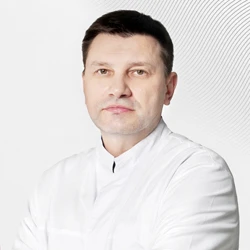
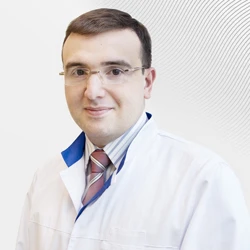
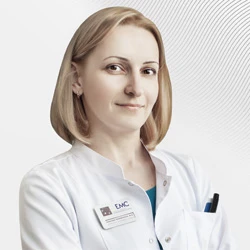

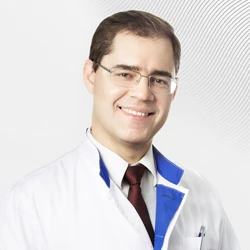
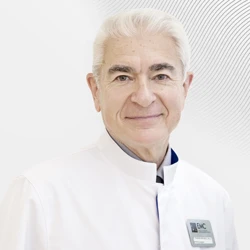
.webp)
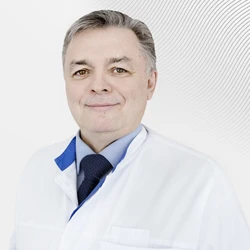
.webp)
.webp)

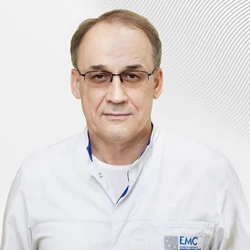
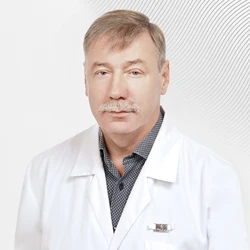
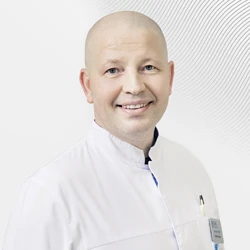

.webp)


